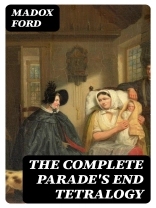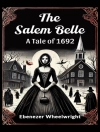Madox Ford’s ‘The Complete Parade’s End Tetralogy’ is a masterful exploration of the disillusionment wrought by World War I and its aftermath, encapsulating the complexities of human relationships in a rapidly changing world. Comprising four interconnected novels, the tetralogy employs a stream-of-consciousness narrative style that delves into the psychological turmoil of its characters, particularly the protagonist, Christopher Tietjens. Ford’s meticulous attention to social and political intricacies offers a vivid portrayal of Edwardian society, weaving themes of masculinity, duty, and the shifting nature of truth amidst the chaos of war. Ford, a prominent literary figure of the early twentieth century, was deeply influenced by his own experiences, including his service in the British Army during the Great War. His background in journalism and intimate connections with leading writers, such as Joseph Conrad, shaped his innovative approach to narrative structure and character development. This rich tapestry of personal and collective experiences informs the tetralogy’s poignant reflections on love, loss, and the struggle for identity in the face of societal upheaval. A must-read for enthusiasts of modernist literature and history, ‘The Complete Parade’s End Tetralogy’ is not only a profound reflection on the impact of war but also a timeless exploration of human resilience. Ford’s intricate character studies and expert narrative techniques make this work an essential contribution to 20th-century literature, inviting readers to engage with its enduring themes and complexities.
A propos de l’auteur
Ford Madox Ford, born Ford Hermann Hueffer (1873-1939), was an eminent English novelist, poet, critic, and editor, whose legacy is largely anchored in the modernist movement of the early 20th century. A prolific writer, Ford’s work is distinguished by its narrative sophistication and a keen psychological depth, exemplified in ‘The Good Soldier’ (1915), a novel that remains a touchstone of unreliable narration and literary impressionism. However, ‘The Complete Parade’s End Tetralogy, ‘ encompassing ‘Some Do Not…’, ‘No More Parades’, ‘A Man Could Stand Up—’, and ‘Last Post’, is perhaps his magnum opus. This monumental work artfully captures the tumult of the World War I era through the lens of its protagonist, Christopher Tietjens. The tetralogy, while intricate in its exploration of time and memory, is particularly lauded for its vivid portrayal of societal upheaval and the personal complexities of its characters. Ford’s background as the founder of literary journals such as ‘The English Review’ and ‘The Transatlantic Review’ allowed him to foster relationships with contemporaries such as James Joyce and Ernest Hemingway, influencing literature on both sides of the Atlantic. His literary style, marked by experimentation with narrative structure and a deft, poetic use of language, has continued to inspire and challenge readers and writers alike.












